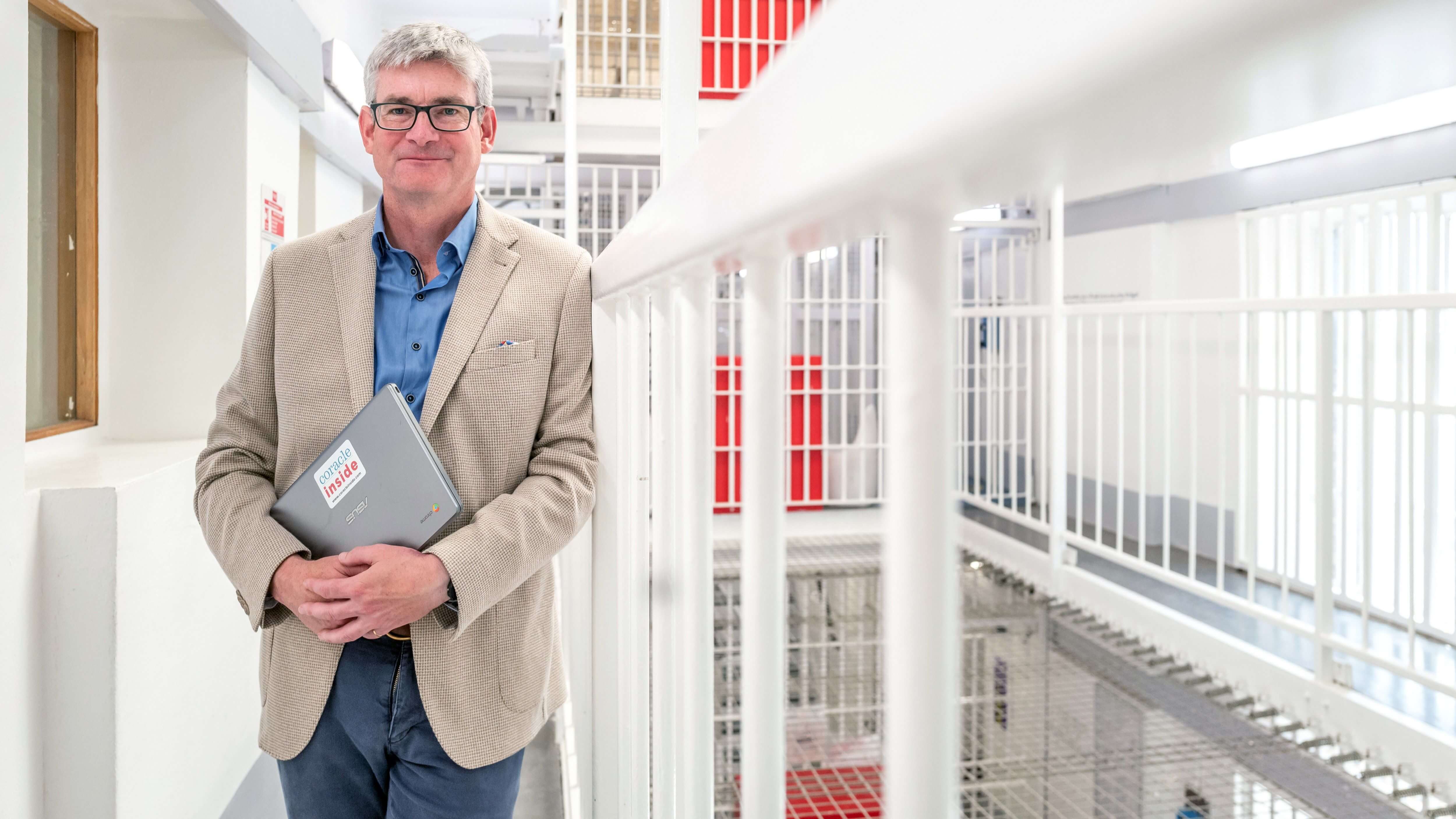Addicted To Doomscrolling And Online Trivia? Prison-Style Education Might Be The Answer
The internet offers so many opportunities, but sadly many of them lead to nowhere.

Let’s face it, we’d all be far more productive if we could only keep our focus. My day is probably rather like yours, I spend a lot of time on my laptop and mobile. I’m online a great deal, dealing with emails, writing documents and trying to learn things relevant to my business and life.
The digital world is simply tremendous. There’s more information than any one person could ever consume in a whole lifetime just a few clicks away. But while this can and often is empowering and productive it can also mean we find ourselves drowning in data.
Every day, I find myself distracted, sucked into some rabbit hole via social media, an email or message from a friend. Digital distractions disrupt my day, every day, and I suspect you know exactly what I mean.
No internet in prison
But also there are days when I go to prison. Not as a convicted criminal but because my company, Coracle, provides laptops prisoners can use in their cells. We are currently operating in 90 prisons in England and Wales.
There is no internet in prison, no broadband, and I have to leave my mobile in my car before I enter the prison gates. Once you’re inside a prison, you enter one of the few places in the UK almost completely untouched by the digital revolution.
Our laptops are totally offline. Users are given a Google Chromebook, pre-loaded with content that prisoners can use to study and learn. From basic literacy courses to food hygiene and driving theory tests, right through to Open University courses, our laptops enable prisoners to do something productive while they are stuck inside their cells.
The prisoners love their laptops and we’ve had many great success stories of inmates embracing education in a way that they never did before. Many of our users were excluded from school and have little in the way of academic experience or qualifications.
They work through videos, tests and content, complete assignments and, when they’ve done their work, they hand over their laptop to a member of my team who can download and forward on their assignments to the course provider.
It’s a system that aims to bring the benefits of digital without actually going online. Obviously, we designed this to comply with the legal restrictions of a prison. But, increasingly, I am wondering whether similar systems might be a good idea for many other groups.
Online harms
In recent times, the harms the internet can cause have come into clearer view. The clutter of the internet contains much that can distract and - worse - even damage its user. There are online trolls and bullies, hackers and bots, sites dedicated to misinformation, and, of course, material which is criminal.
We are all concerned about how this is affecting wider society and, in particular, we are worried about how the online world is affecting our children. Some want children to be offline as much as possible. But as tempting as it may be, we can’t go backwards. Our world is digital and so our education systems must reflect that.
Schools
Schools are pushing back against big tech. Some are banning mobile phones from classrooms and corridors. Many parents would like to see age restrictions for some devices. While I am sympathetic to these policies, I don’t feel they are providing a proper answer.
What we want is a system of learning that enables the user to access a world rich in content and information but that doesn’t leave them bombarded with online distractions, harmful content and inappropriate messages.
Online experience
I am imagining an online experience for learners of all ages which is digital but not fully offline. Where there’s lots of content to access but it is curated around what you really need to learn about. There’s no need for these computers to all be connected. But it is easy for a teacher to sync them with online platforms when necessary. It is a learning experience which is connected but not always ‘on’.
I admit that there is a certain irony in a learning platform created for prisoners being a safe and secure option for wider society. But sometimes innovation for those on the margins can be wonderful for a much wider audience. If you don’t like my idea I can understand, I just hope you made it to this part of this article without getting distracted.
James Tweed is the founder and CEO of digital learning company Coracle, which provides inmates at 90 prisons in England and Wales with access to education in their cells through laptops. It is one of the few companies permitted by the Ministry of Justice and HM Prisons and Probation Service to provide prisoners with laptops for education
Thanks for signing up to Minutehack alerts.
Brilliant editorials heading your way soon.
Okay, Thanks!

